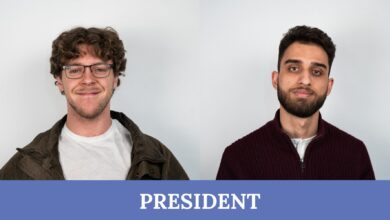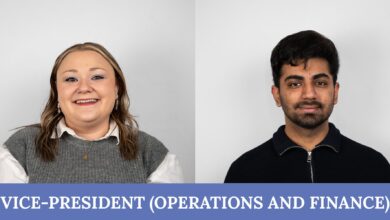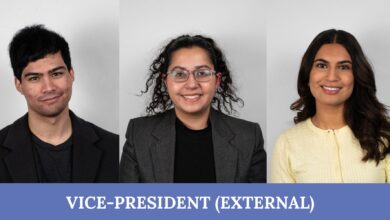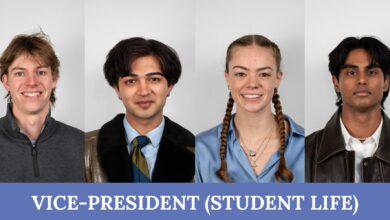SU Elections 2022: Residence Forum Recap
This forum, conducted on March 4, was held online via Zoom, and live streamed on Facebook and Instagram for the public to view.
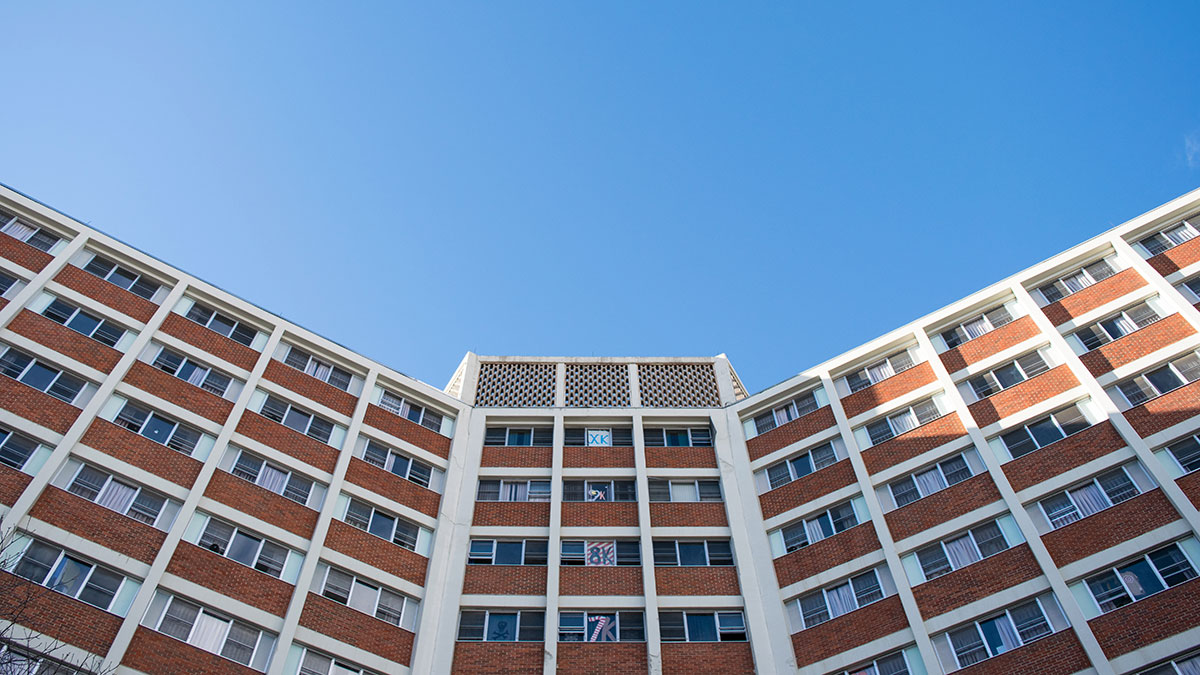 Christina Varvis
Christina VarvisThe third forum of the University of Alberta’s Students’ Union 2022 elections was the Residence forum.
This forum, conducted on March 4, was held online via Zoom, and live streamed on Facebook and Instagram for the public to view.
Candidates gave their opening statements, and spent the rest of the forum answering questions from the audience and from other candidates. The majority of questions addressed to candidates were asked from other candidates.
Here is the TL;DR version of this forum:
- President: on-campus sexual violence prevention and funding
- Vice-president (operations and finance): mental wellness supports
- Vice-president (external): communication with student groups and the provincial election
- Vice-president (academic): understanding academic cohorts
- Vice-president (student life): on-campus free menstrual products
- Board of Governors Representative: COVID-19 safety in residence and on campus in general
- Alberta Public Interest Research Group (APIRG): nothing new
- International Students’ Association (ISA): I-Card and other services expected to be funded by the International Students’ Association Fee (ISAF)
- WUSC: what services will be funded by collected fees
Presidential candidates discuss addressing on-campus sexual violence and ensuring transit safety
Presidential candidate Emily Kimani asked her two opposing candidates what specific plans they have for addressing sexual violence on campus, other than advocating for increased funding.
“Sexual violence is an ongoing issue on our campus, particularly in residence,” she said. “Apart from advocating to the provincial government for increased funding, as you both mentioned in your platforms, what are your specific plans for addressing sexual violence on our campus?”
Haruun Ali, presidential candidate, emphasized the importance of advocating to the provincial government.
“As an activist, advocacy is an important thing here,” Ali said. “The reality of the situation is that we have a provincial government that is hostile, and just a couple of days ago did they announce $2.5 million [in sexual violence prevention funding]? Yes. But if math can math, that’s about $30.00 per student. That’s not enough money.”
“What we need to do now is mobilize students to actively advocate to our government. At the same time too, the university is not without blame. It should not have taken five years for the university to hire a sexual assault prevention coordinator… We need to have better advocacy so we can complete objectives faster and actually get things done.”
Presidential candidate Abner Monteiro echoed Ali’s support of securing adequate funding, while also calling for the implementation of sensitivity training programs on campus.
“Funding is one of the key components in making sure we continue to be strong and sustainable in addressing sexual assault on campus,” Monteiro said. “With the resources we do have, we need to ensure we are developing training programs, including sensitivity training programs, for individuals involved in the sexual violence complaint process.”
“A really big component of this is working with the sexual violence response coordinator and the vice-president (student life), because their primary role is advocacy work, and supporting them in making sure our sexual violence policies are inclusive and support the students who need it.”
Monteiro asked Ali and Kimani why they haven’t included transit and campus safety in their platforms, and what their plans are to ensure students are safe while using transit.
“Transit is extremely important for students at the U of A, particularly students in residence as they rely on it to get around Edmonton,” he said. “To both of you, neither one has included transit or campus safety in their platforms. I would like to know why you haven’t included it in your platforms, and what your specific plans are to ensure transit is safe for students to use.”
Ali emphasized working along the city of Edmonton to ensure that transit becomes safer for students.
“We need to give people support to ensure our campus community is safe for everyone,” Ali said. “The City of Edmonton has started some wonderful programs to ensure we are supporting our unhoused population, and I’m committed to using my connections with city council to ensure transit safety is an important part of our community here on campus.”
Kimani emphasized the need to consult with Black and Indigenous students on campus regarding how transit and campus security should look.
“I 100 per cent agree that we do have big safety concerns on our campus and on transit, but the way to go about that is not to add more security or cops on campus,” Kimani said. “We have to take the time to work with our community members, especially Black or Indigenous students, to ensure our supports are supporting everybody.”
-Areeha Mahal
VP Ops Fi Candidate discuss mental wellness supports for students
Julia Villoso, a third year bachelor of arts student and the sole vice-president (operations and finance) (VP Ops Fi) candidate, discussed her platform at the Residence forum by addressing student mental wellness and mental wellness supports.
“Residence is an incredibly important part of the campus community…it can also be incredibly stressful and hard to deal with at times,” Villoso said.
“For a lot of students Lister is the first time they are away from family and support structures they have known their entire lives.”
She expressed a desire to focus on mental health resources — specifically Empower Me, which is a confidential support service that connects students to mental health resources like professionals in psychology, psychotherapy, social work, nutrition, and more. Empower Me is accessible through the UASU health and dental plan.
Villoso wants to make this service more visible and improv wellness support for all students.
By increasing student awareness of existing mental health resources, such as Empower Me, Villoso hopes to put “less of a burden on other campus services that already have extraordinary wait times.”
“Students shouldn’t have to wait months for mental health assistance.”
Presidential candidate Ali asked Villoso how she would “build on the work of [her] predecessor [to ensure] we finally roll out free menstrual products to all students on campus.”
She responded by saying that she wants to focus on getting a permanent sponsorship for the period equity program.
“What I really want to do is secure a long-term sponsorship that can actually get that funding [for the period equity program].”
-Martin Bendico
Communcation with student groups discussed by VPX candidates
Both vice-president (external) (VPX) candidates highlighted the importance of fighting sexual violence on campus and spoke about their plans for the provincial election.
During his opening remarks, Christian Fotang explained that he wants to continue as VPX to “making sure that we’re keeping our city affordable and a fun place to live.”
Fotang said that “more can be done” on fighting campus sexual violence, including “training guides and resources,” and advocating the provincial government for funding towards the Council of Alberta University Students’s (CAUS’s) recommendations on campus sexual violence.
Fontang also highlighted the increasing cost of residence and housing. He said living in residence is becoming “a luxury,” partly due to costly mandatory meal plans.
He argued that while Edmonton is affordable compared to other cities in Canada — it needs to stay that way.
Fotang voiced intentions to advocate to city council on affordable housing. As Edmonton Student Alliance (ESA) chair, he said he has been working with Edmonton’s city council for an affordable housing project to be approved and to explore new zoning regulations.
Chris Beasley’s opening statements started with him recognizing that “when you live on campus, you also access your services on campus.”
Beasley said he would advocate to the government to increase funding towards mental health and transit safety. Regarding sexual violence support, he said the provincial government needs “to allocate crisis funding for a crisis situation.”
He argued that the current zoning regulations around campus reduce the supply and variety of housing available. He says he has a “detailed plan to work with the city” and that his background proves he can push for change.
Beasley criticized Fotang’s work building connections on campus.
“My opponent barely attended the Council of Faculty Associations (CoFA) during the entirety of his term, never met with the Arts Faculty Association,” he added. “I don’t know if they’ve ever met with the residence associations.”
In response, Fotang pointed out that the vice-president (external) does not have a chair on the Council of Faculty Associations, but that he wants “to work closer with the [faculty associations].”
“[The] idea that I try not to communicate or work with the students’ groups — it’s just absurd, and it’s a lie,” Fotang said.
He noted past consultation with faculty associations when he was planning to speak to a House of Commons Standing Committee.
Fotang quizzed Beasley on what he would do to implement the rest of CAUS’s recommendation from their White Paper on campus sexual violence. Beasley said, “the most important thing is keeping the pressure on when it comes to the actual crisis funding that we need for our communities right now.”
Presidential candidate Ali asked the vice-president (external) candidates what they would be doing to ensure post-secondary is a ballot issue in the next provincial election.
Beasley said that he intends to run campaigns through CAUS, go to policy conventions, and meet with MLAs. He also wants to plan more successful Get Out the Vote (GOTV) strategies, calling the previous GOTV initiatives in the fall “failures.” He said, “I personally promise to get 5,000 pledges to vote.”
In response to Ali’s question, Fotang “share[d] the same sentiment” when it comes to ensuring post-secondary issues are adequately addressed by parties in the provincial election. He added that he wants to bring politicians and stakeholders to campus to “let students share [their issues] with them.”
He expressed belief that communicating to Albertans is especially important because Edmonton is “a sea of orange.” Fotang mentioned wanting CAUS “to obtain third party advertiser status” so that they can run ads during the provincial election.
–Kevin Theriault
VPA candidates questioned on understanding of academic cohorts
Both vice-president (academic) (VPA) candidates were asked whether academic or residence cohorts were included in candidates’ platforms by a member of VPA candidate Rowan Morris’ campaign team.
Academic cohorts are opportunities for residents in the same faculty or program to share residence floors.
“In your opening statements, neither of you spoke on faculties in residence or academic cohorts; are these included in your platforms and if so what are your plans?” the audience member asked.
Milan Regmi, vice-president (academic) candidate, said he has attempted to get in contact with the Lister Hall Students’ Association, the organization which represents the residents of Lister Hall, but has not heard back. He assured the audience “residence cohorts will be a part of [his] campaign and advocacy.”
Gurleen Kaur, vice-president (academic) candidate, said she wanted to have a guest seat for the International Students’ Association at the Council of Residence Associations (CORA) because “a large number of students living in residence are international students — and their voices need to be heard.”
Later in the forum, Morris asked if the candidates could speak to programs such as academic cohorts. Morris expressed concern that, based on the candidate’s platforms and responses to the previous question “it doesn’t seem like these have been points of consultation” and “it doesn’t quite seem like [the candidates] are aware they exist.”
Regmi reiterated his attempt to reach out to Lister Hall Students’ Association. Kaur said, due to vice-president (external) sitting on CORA and vice-president (academic) sitting on Council of Faculty Associations (COFA), the vice-president (academic) does not have much control over academic cohorts.
When nearing the end of the forum, a member of Chris Beasley’s campaign asked the vice-president (academic) candidates to “share their understanding on how academic cohorts work” and “what their purpose is in residence.”
Kaur explained the meeting of residence associations at CORA.
“All the residence associations meet at CORA to discuss how they will implement everything,” Kaur said. “Their purpose is to support students with their academics on residences.”
Regmi also attempted to describe academic cohorts, calling them an opportunity for students in the same faculty to “share experiences.”
“Residence cohorts are specifically faculty-based… where people from the same faculty can share experiences and take part in the things that are important to them, and be able to find that common ground within those cohorts,” he said.
-Areeha Mahal
Free menstrual products across residences main discussion topic for VPSL candidates
Vice-president (student life) (VPSL) candidates were asked on how will they ensure the free menstrual product program is finally off the ground.
Joannie Fogue, a third year political science student and current Association des Universitaires de la Faculté Saint-Jean (AUFSJ) president spoke about her advocacy for free menstrual products at Campus Saint-Jean (CSJ) in order to be accessible for as many people as possible.
“The way we go about this is making sure we’re not only relying on resources from sponsorships that the UASU has but working with faculty associations as well as other student’s representative associations to make sure that we’re working with their sponsorships and partnerships they have,” Fogue said.
Rowan Morris, a third year elementary education student and current Students’ Union education councillor, focused on their prior work on the program while working in residence, saying that they already helped get dispensers and baskets for free menstrual products across residences, as well as CSJ and Augustana.
“It is just a matter of us ordering the products to fill those dispensers,” Morris said. “This is achieved between myself and senior resident assistant (SRA) Mackenzie Hammer; I do want to give credit to him, but this is actually a project that I just finished before to take a leave of absence from my position to run for this [position].”
–Jessy Azarcoya-Barrera
COVID-19 safety discussed by BoG representative
Alex Dorschied, sole Board of Governors (BoG) representative candidate, attended the Residence forum to advocate his plans on improving residency.
He acknowledged how students incoming from out of town should not have to pay immense amounts to live in residence when they don’t experience in-person classes — therefore advocating for a concrete framework for future COVID-19 variants and a long-term system of hybrid learning for all students.
He also expressed the desire to give students in Lister Residence the choice between online and virtual learning. He added that even though he was not at the U of A for his first year, he did experience a residence lifestyle and would like all students to do the same in the right circumstances.
He also expressed the expectation that there are tuition increases coming, but said that there should be no more.
“I’m going to stand up to keep tuition affordable for Lister [Hall] residents and the U of A community as a whole,” he said.
In addition, he stated how he will increase transparency in the BoG by implementing social media accounts on Instagram and Facebook so that students know where their institution is heading and can make plans accordingly.
He only received one question at the forum, from vice-president (student life) candidate Morris.
“What is your position is on vaccination and COVID-19 safety in residence?” Morris asked. “I have not seen a definitive stance come from your platform or forums.”
Dorschied responded that he will follow what experts say on the matter — and will not be making decisions on their behalf. He expressed belief in the science of the situation and will implement decisions that experts suggest are best for the community, for the current situation and for future variants.
“My strategy for residence and campuses in general is follow the science and follow how COVID-19 is evolving… follow that to address how to respond to future COVID-19 variants,” he said. “If the experts are suggesting we need vaccination mandates — sure, I guess we can support that. If they suggest we don’t need them, I can go for that as well. But I’m not a doctor, I’m not a public health expert, so I’m not going to be the one making those decisions.”
-Lale Fassone
APIRG delivers opening statement, no questions asked for representative
Sarah Alemu, the outreach coordinator of The Alberta Public Interest Research Group (APIRG), represented at the Residence forum. She delivered an opening statement, which provided similar information as the opening statements presented at the past two forums.
She described APIRG as a “student-run non-profit which for over 20 years has funded projects designed by undergraduate students which uplift our campuses.” It has an optional fee for students on North Campus and CSJ campuses.
APIRG approved $20,000 at the start of 2020 for funding student and community needs during a time of increased social isolation, increasing that sum to $124,000 to promote an inclusive, just, and diverse campus.
In addition, APIRG has supported community events and projects with a focus on harm reduction, gender-based violence, food equity, and arts and culture.
Alemu encouraged students to vote yes to “continue to support an inclusive, just, and diverse campus.”
-Lale Fassone
ISSS lists services enabled by Sci5 fee
Representing the Interdepartmental Science Students’ Society (ISSS) in the forum was Mehul Pal, fourth-year neuroscience student and current director of marketing, spoke at the forum about the society’s $5.00 faculty association membership fee (FAMF).
This fee that is paid by all undergraduate students in the faculty of science in the Fall and Winter semesters.
“This simple $5.00 a semester goes a long way as the main source of funding for the ISSS and helps us provide you with services, events, and resources such as scholarships, mini study groups, Science Week, locker rentals, microwaves, printing services, professional developments events, mentorship, and much more,” Pal said.
He added that 97 per cent of the revenue from this fee goes “directly back to science students” through these events and services.
“Without this fee we wouldn’t be able to facilitate the vast number of services we have provided to students in the past four years to enrich and enhance your experience as a faculty of science student.”
-Areeha Mahal
With a few uses, I-Card would “cover the cost” of the ISAF, ISA says
Renson Alva, the assistant manager of the International Students’ Association (ISA), represented the association at the forum. He briefed the audience on the components of the proposed International Students’ Association Fee (ISAF).
The ISAF would cover the International Students’ Benefit Card (I-Card), which would provide international students with discounts around the Edmonton area.
“The I-Card offers discounts to various various shops and restaurants around Edmonton,” Alva said. “You can find a list of these shops and more information on ISAF at the ISAF website. Just by using this card a few times, you can already cover the cost of the fee.”
Alva also mentioned students groups, awards, and welcome programs as potential projects that could be funded by the ISAF.
“[The ISA] does a lot for international students — ISAF will further strengthen our advocacy so we can provide residence students with better programs and allow them to enjoy their time as international students.”
-Areeha Mahal
WUSC details what services fee funds will go towards
At the forum, Maria Ren was the representative for the World University Service of Canada’s (WUSC’s) referendum. Ren began her statement by describing WUSC’s main program.
“The main project we run at the U of A and Campus Saint-Jean is the Student Refugee Program (SRP),” she said. “This program aims to help sponsor a refugee student [to] obtain a permanent residency in Canada, as well as an undergraduate degree here at the U of A.”
If the referendum passes, students will be paying $1.50 instead of the $0.52 per semester they are paying right now. According to Ren, the increase in funds “necessary” due to inflation and the COVID-19 pandemic.
“The money will cover living expenses for the refugee student, things like food, winter clothing and gear, and essential technology like a phone,” Ren said. “Funds will also cover the cost of textbooks and courses as well.”
Refugee students part of the SRP program are often situated on residences at U of A campus. According to Ren, the “support of the residence associations is crucial to the success of the program.”
-Areeha Mahal

